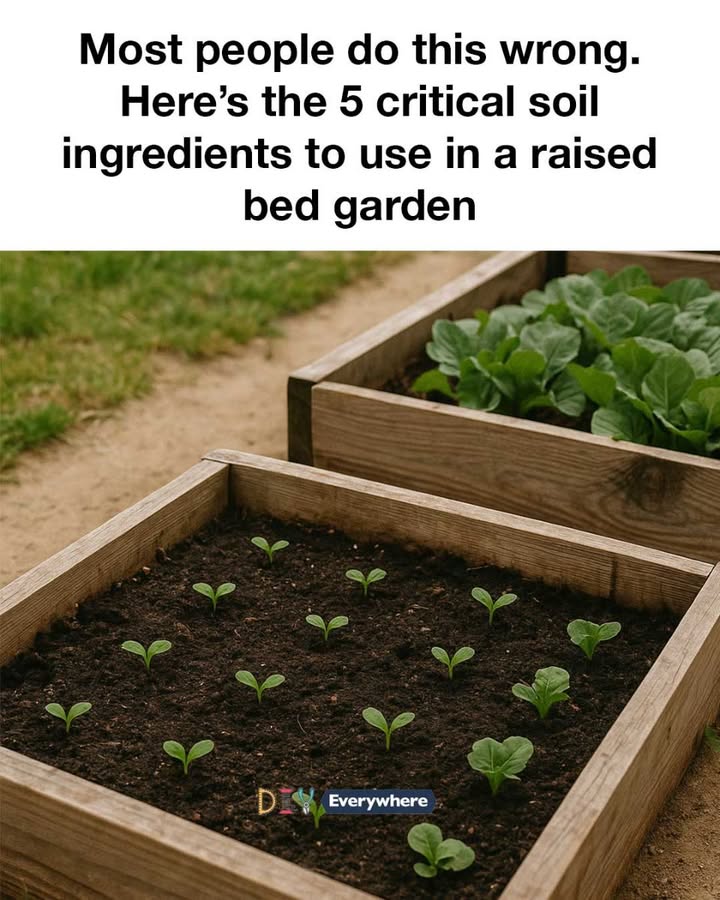Continued on next page…
The Common Mistakes in Soil Preparation
Many gardeners make the mistake of filling their raised beds with whatever soil is readily available, such as topsoil or garden soil, without considering its composition. This can lead to issues such as poor drainage, nutrient deficiencies, and imbalanced pH levels. Another common error is neglecting to mix in organic matter, which is essential for maintaining soil structure and fertility. Understanding and avoiding these common pitfalls is crucial for creating a thriving raised bed garden.
1. The Role of Organic Matter in Soil Health
Organic matter is a critical component of healthy soil, as it improves soil structure, enhances nutrient retention, and supports a diverse ecosystem of beneficial microorganisms. Compost, aged manure, and leaf mold are excellent sources of organic matter that can be incorporated into raised bed soil. These materials not only provide essential nutrients but also improve the soil’s ability to retain moisture, reducing the need for frequent watering. Regularly adding organic matter to your raised beds will ensure that the soil remains fertile and productive over time.
2. The Importance of Proper Drainage
Proper drainage is essential in raised bed gardening to prevent waterlogging, which can lead to root rot and other plant diseases. To achieve good drainage, it’s important to use a soil mix that includes coarse materials such as sand or perlite. These materials create air pockets in the soil, allowing excess water to drain away while still retaining enough moisture for plant roots. Additionally, ensuring that your raised bed is elevated and has a slight slope can further improve drainage and prevent water from pooling.
3. Balancing Soil pH for Optimal Growth
Soil pH plays a crucial role in nutrient availability and plant health. Most vegetables and flowers thrive in slightly acidic to neutral soil, with a pH range of 6.0 to 7.0. Testing your soil’s pH and adjusting it as necessary can make a significant difference in plant growth. Lime can be added to raise the pH of acidic soils, while sulfur can be used to lower the pH of alkaline soils. Regularly monitoring and adjusting soil pH will help ensure that your plants have access to the nutrients they need.
ADVERTISEMENT

